There has been a lot of hype behind vivo’s all-new vivo V27 series. But while there has been much fanfare behind the V27 series, it’s been the vivo V27 5G — the more premium handset of the two — that has been getting most of the attention.
However, we shouldn’t forget that vivo also made a V27 series phone that vivo claims to offer most of the same features at a much lower price called the vivo V27e.
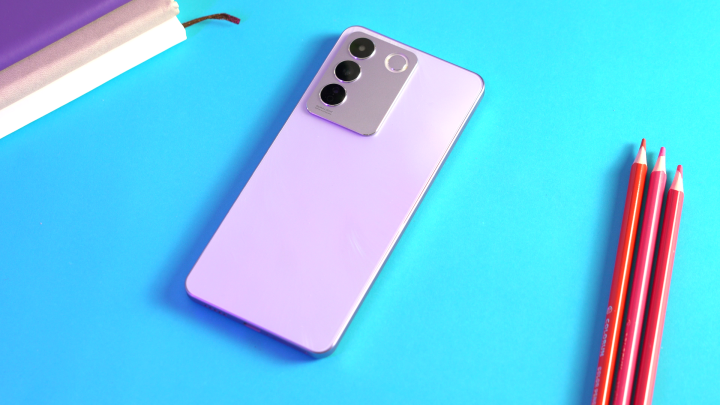
Does the vivo V27e offer a good enough package at a lower price? Or is it worth spending the extra money for the V27?
Let’s find out in our full review of the vivo V27e.
Table of Contents
When you first see the vivo V27e, the first thing you’ll notice is definitely the unique back panel design. In the Lavender Purple variant that we have here (also available in Glory Black), the V27e has what looks like a hologram finish with a feather-like design.
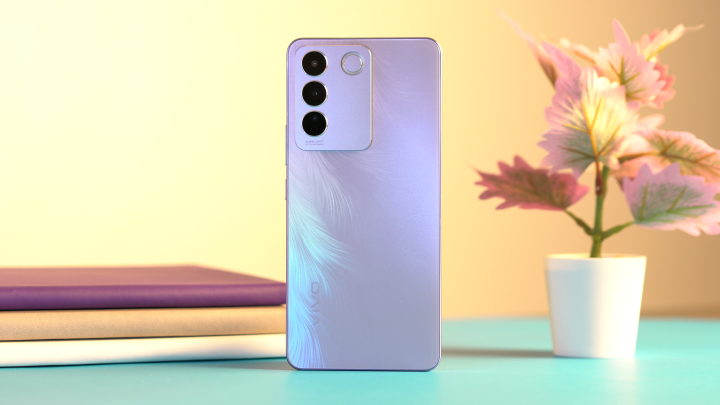
It’s an eye-catcher for sure and two of my friends even pointed out how cool the back design was when I placed it on a coffee table during one of our hangouts.
Personally, I love that the V27e is bold enough to differentiate itself in terms of design. It also helps that the frosted-feather aesthetic at the back gives a slight texture that makes the phone less slippery and less prone to fingerprints in daily use.
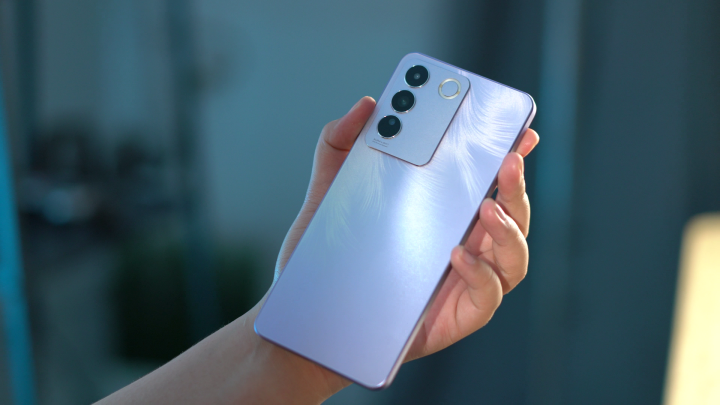
The phone is 7.69mm thick with a chamfered frame (that seems to be a mix of metal and plastic). The V27e feels comfortable to grip and hold, with a frame that easily wraps the palm.
The three rear cameras on the V27e rest on a rounded camera bump, with the lenses slightly exposed. Then you also have vivo’s signature Aura ring light next to the cameras (which we’ll be delving more into in a bit).
The V27e has a power button and volume rocker on the right side of the device.
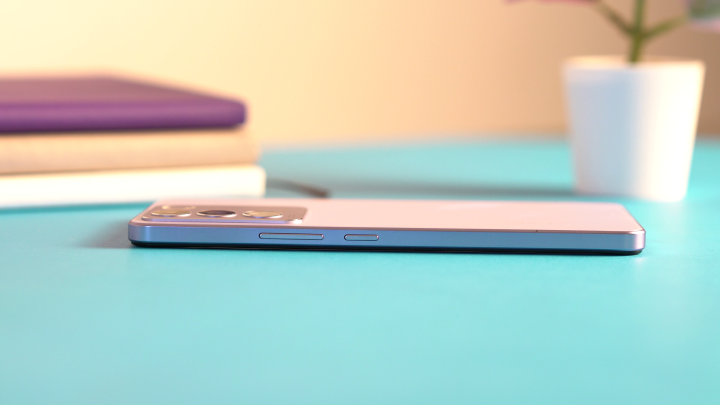
Then we have a USB-C port, a microphone, a SIM slot, and a speaker grill on the bottom; a secondary mic on top; and nothing on the left side.
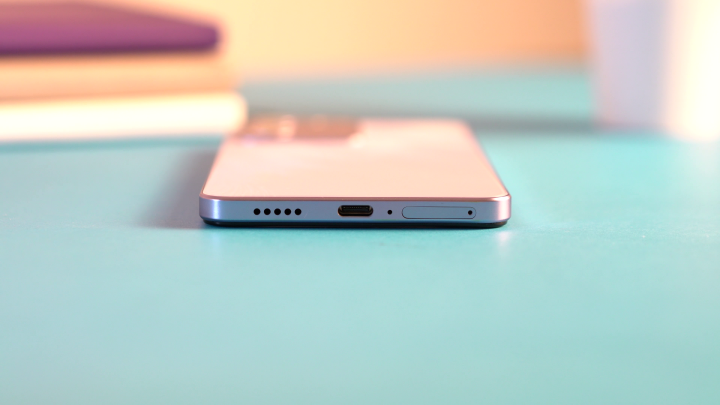

Lastly, the vivo V27e is rated for IP54 ingress protection against dust and water. This means it has limited dust protection and is protected from sprays of water from any direction. We would have liked it if the V27e had a higher IP rating but we understand that we get lower protection with the lower price tag.
Overall, the design and build of the vivo V27e get a big thumbs up from us for having a unique back panel and a comfortable feel in the hand. A good start so far.
For the display, the vivo V27e has a 6.62-inch FHD+ AMOLED screen with a 120 Hz refresh rate. It has a punch-hole notch at the top for the selfie camera and decently thin bezels all around. It also has an under-screen fingerprint sensor at the bottom of the display.

The V27e’s display is good and, with its AMOLED technology, colors were perfectly vibrant and rich. Viewing angles were also good on the V27e and the display stays decently visible, even under direct sunlight.
For the 120 Hz high refresh rate, we like that the V27e comes with an option to either dynamically shift the refresh rate depending on the content being displayed or to 120 Hz or 60 Hz at all times.
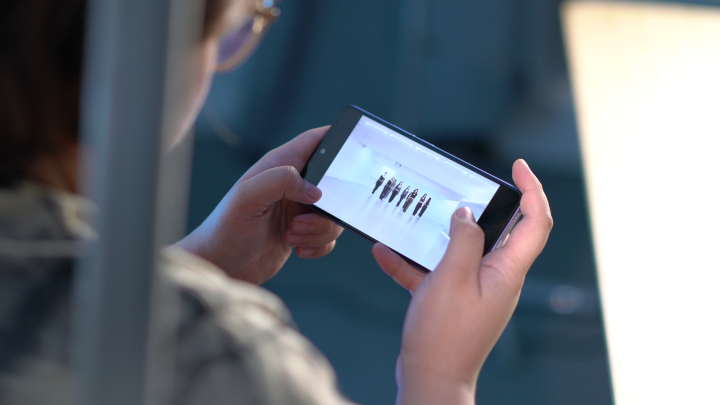
However, there is one glaring issue with this high refresh rate screen. Navigating the V27e with the 120 Hz panel of the display, even when set to be on at all times, felt choppy. I specifically noticed this when scrolling through Instagram and Facebook, where for one second the screen would seem to be at 120 Hz and then just drop down to 60 Hz or less when I scrolled.
The experience was jarring as it seemed like either the display refresh rate wasn’t properly optimized or the phone’s chipset couldn’t keep up with the rapid refresh of the content.
The V27e’s display is disappointing because the panel itself is pretty good on its own. It just so happens to have a pretty unoptimized high refresh rate screen.
Now we have the V27 series’ headline feature — the cameras. vivo likens the V27 line to having a “studio in your pocket.” Let’s see if the V27e lives up to that promise.
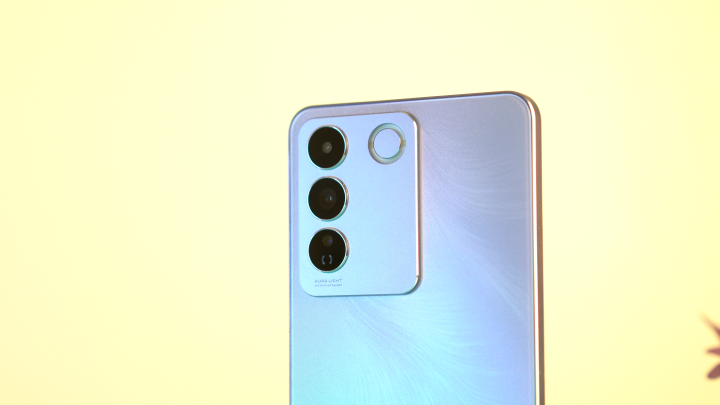
For its cameras, the vivo V27e has a triple-rear camera setup that’s led by a 64MP OIS main sensor with an f/1.79 aperture; a 2MP bokeh lens at f/2.4; and a 2MP macro lens at f/2.4.
It then has a 33MP selfie camera with an f/2.0 aperture.
The main camera feature that the V27e comes with is the “Aura Portrait Algorithm,” which is a combination of both hardware and software optimizations that work together to bring out the best lighting for portrait and night shots.

With these high claims, we decided to mainly focus our camera test on this feature. Unfortunately, the results were hit or miss.
To test the Aura Portrait Algorithm, we shot our subjects with the V27e’s three main modes: a regular photo on the main camera, its Portrait Mode, and the Portrait Mode with the Aura light turned on (that’s how you turn on the Aura Portrait Algorithm).
vivo says the Aura Portrait Algorithm is best used for night shots or night portraits so we tested it out in two different low-light scenarios.
For the first test, we took these photos at around 7 PM outside of a coffee shop with the sky already dark. Here are the photos:

V27e Sample 1 Regular Mode

V27e Sample 1 Portrait

V27e Sample 1 Aura
In our eyes, the photo using the vivo V27e’s regular mode produced the best result. It got a good crop of our subject, with decent bokeh or background separation, and accurately represented his skin tone. With the Portrait mode, on the other hand, you can see that our subject’s face turned lighter than usual and that he isn’t in focus.
The photo with the Aura Portrait Algorithm, on the other hand, was able to properly cut out our subject and give us a respectable depth effect. However, just like the regular photo mode, the Aura Portrait Algorithm photo just wasn’t able to get our subject in focus.
This is especially weird since we did tap the viewfinder to focus on our subject and yet the photo still came out a bit blurry and missed the subject completely.
For our next test, we shot photos when the sun was just going down at around 5:30 PM.

V27e Sample 2 Regular Mode

V27e Sample 2 Portrait

V27e Sample 2 Aura
This time, the Aura Portrai Algorithm photo arguably gave us the best result. As advertised, it was able to properly light the face and give a subtle bokeh effect to our subject. Great photo.
However, if you look at the photos from both the regular photo mode and the portrait mode without the Aura light, the subject is once again out of focus. The photo we got in both resulted in our subject looking blurry and ended up being unusable.
With continued testing, we got the same results. Most of the time, we would have a hard time getting a portrait that was in focus. But after three to five more tries, we’d suddenly get a really good portrait photo that lives up to the pocket studio name. It’s a shame since the photo quality you get when the Aura Portrait Algorithm works is impressive. However, the V27e’s camera, and especially its lackluster focus is too inconsistent to ignore.
Photos from the main camera are decent, with good colors and no tendency to over-brighten shots. We also like the 2x Zoom on the V27e, which is able to zoom into the subject without much reduction in detail (as seen below). Sadly there’s no ultrawide to be found here so those looking for a wilder field of view will have to look elsewhere.

V27e Sample A
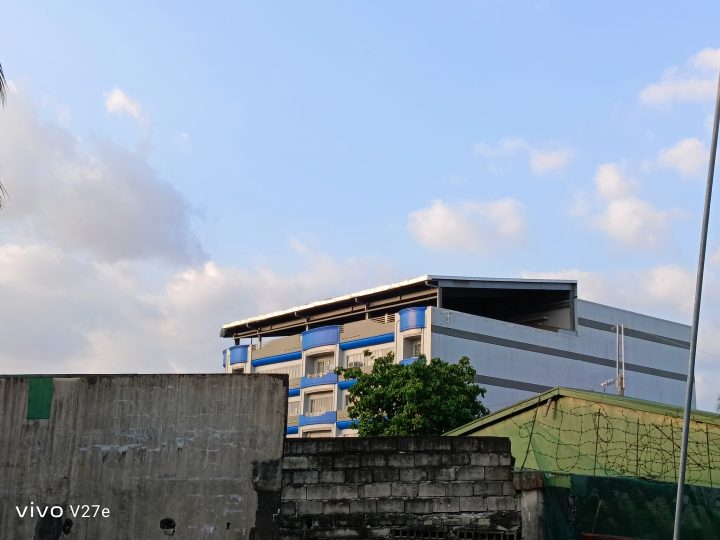
V27e Sample A Zoom
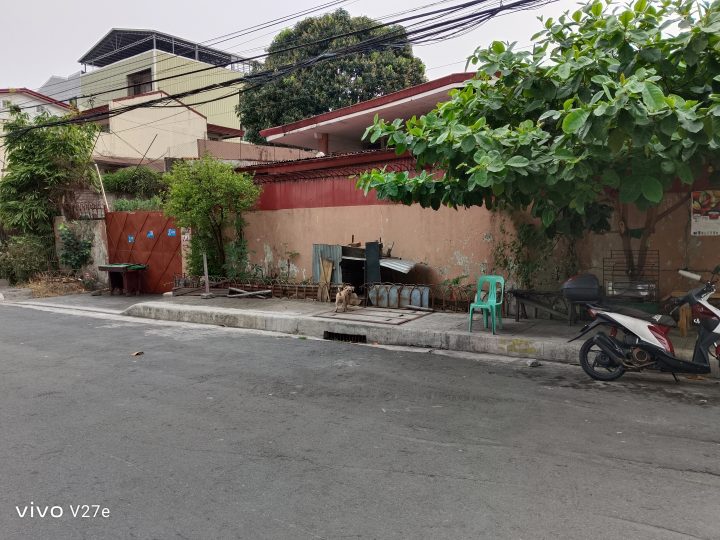
V27e Sample B

V27e Sample B Zoom
Night photography was also decent with good exposure to dark subjects and ample representation of colors even at night.

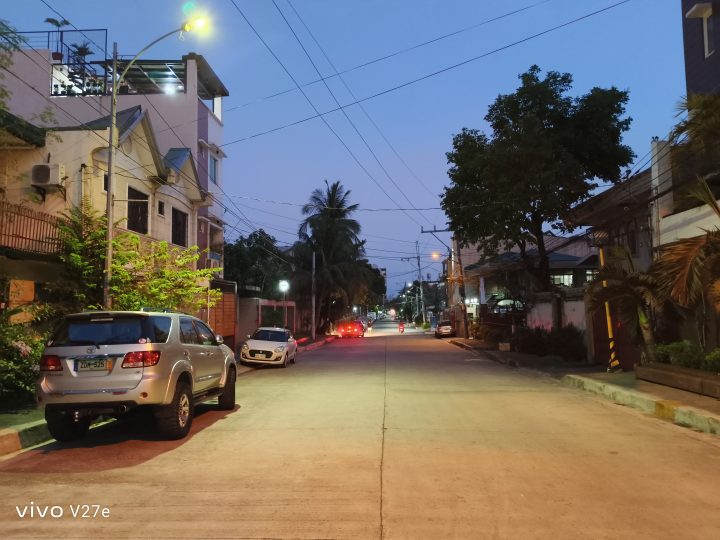
We did, however, notice that the focus issues also happened at non-portrait night shots like this one (below).
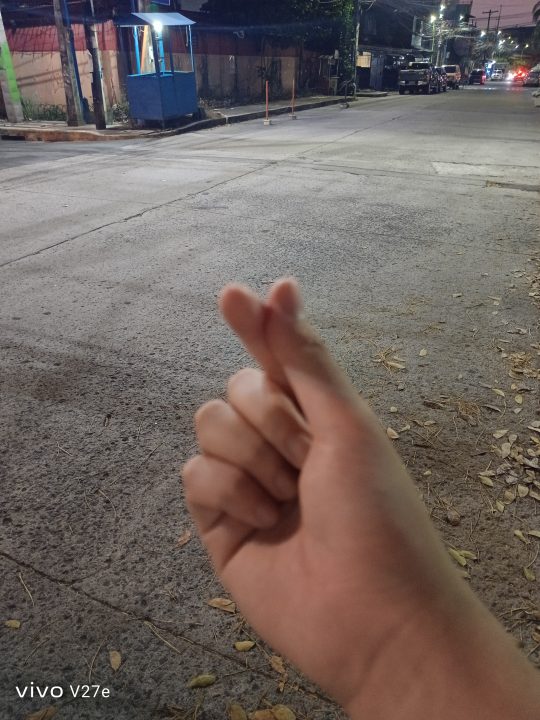
For selfies, the V27e’s 32MP front camera produced surprisingly good shots. It captured tons of detail and doesn’t overexpose or underexpose subjects.


For video, while the V27e has a 64MP OIS sensor, we noticed that footage from the phone was shaky and jittery. It doesn’t seem like the Optical Image Stabilization (OIS) was working for the phone, unfortunately (as seen below). It did however give us footage with good lighting and decent colors.
Overall, the V27e’s camera system is capable of getting you pocket studio-quality portraits. You just have to keep on trying to get there. If the cameras on the V27e were a little bit more consistent, and if the focus was a lot better, the V27e as a camera-centric phone would’ve been a really good option, especially at this price point.
The V27e is powered by a MediaTek Helio G99 chip, 8GB of RAM, and 256GB of internal storage.
To be frank, the V27e isn’t the fastest-feeling phone out there. As mentioned earlier with the issue on its 120 Hz screen, navigating menus in the phone felt slow and jittery.
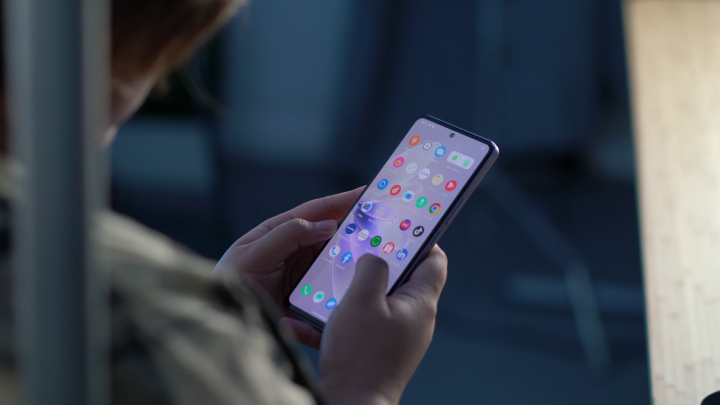
Basic tasks like social media and browsing websites are fine but that’s only if you stay in that one app. Once you start switching around apps, you’ll start to notice the phone’s performance buckle. Even with the 8GB of RAM, it seemed like apps in the background were getting killed or reset quickly.
It felt like you had to give the V27e a quick second to do what you want it to do with each tap. As much as it may be the processor, we think that this is also due to the V27e’s software — which we’ll get into later.
For benchmarks, here are the results we got:
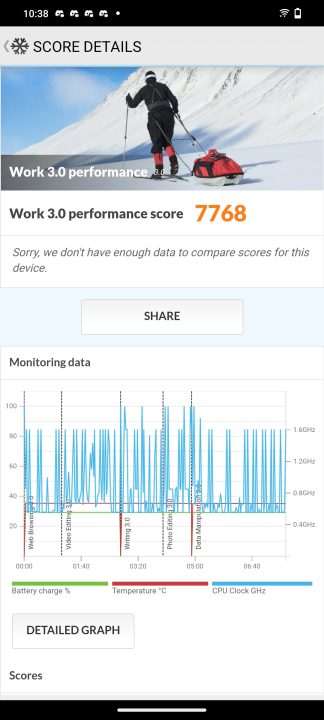
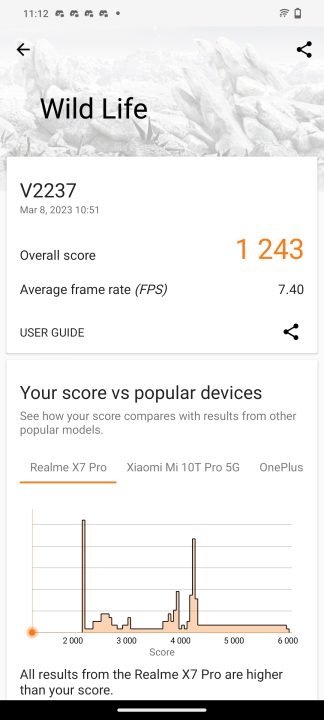


In terms of gaming, the V27e was respectable. For the casual gamer who wants to play games such as Mobile Legends (ML) or Call of Duty Mobile, the V27e ran them just fine in our testing.
However, people who want to play more graphically-intense titles such as Genshin Impact may want to look elsewhere. Roaming around the world of Genshin without anything happening netted us around 25-29 FPS and a bit of lag — but still playable gameplay. But when you start to battle monsters or use any abilities that need more graphics, the phone’s FPS drops to less than 15 FPS or less.
For biometrics, the vivo V27e has an under-display fingerprint sensor at the bottom of the screen. It’s fast and reliable and I had no problem whatsoever with entering my print to access the device.
Overall, the vivo V27e is not the worst performer out there but we can’t exactly say that it’s good. It can do most things we want a phone to do decently, like using Facebook, watching TikTok, playing a quick game of ML, and using Facebook Messenger or Telegram — but it won’t feel quick or snappy while you’re doing them.
The vivo V27e runs on Funtouch OS 13 Global based on Android 12. Let’s start off with the pros of the V27e’s OS experience. First, we really like how customizable everything is in Funtouch OS.
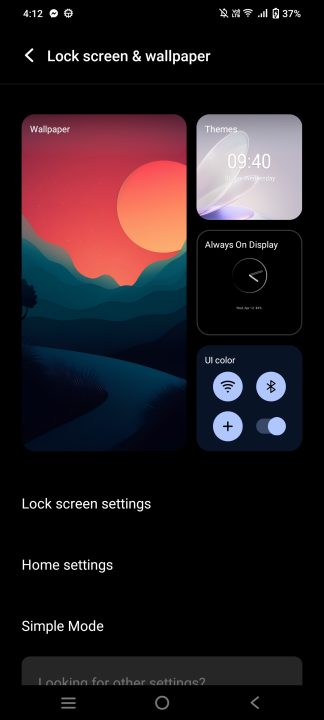
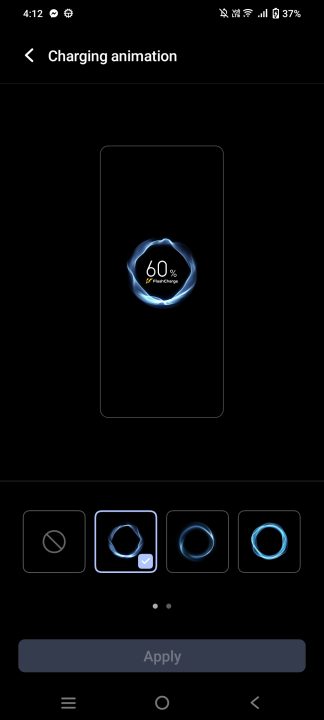
Within just the launcher itself, you can customize the Always-On-Display, the grid size of your launcher, the fingerprint animation, and many others. You can even customize what type of animation you see when you plug the phone in to charge. I also liked the clean notification quick settings on the vivo V27e.
What we didn’t like however were the ads and bloatware. For starters, when we first set up the phone and put all our information in, we were bombarded with a ton of ads and notifications just from vivo’s browser and vivo’s V-Appstore.


There are even ads in the form of app recommendations on the home screen, which places a folder of recommended games, for example, that will prompt you to download them once clicked.


Not to mention the other extra apps that come with the phone stock. In my testing, it took me a good 15-20 minutes to just place everything in one folder just to organize them.
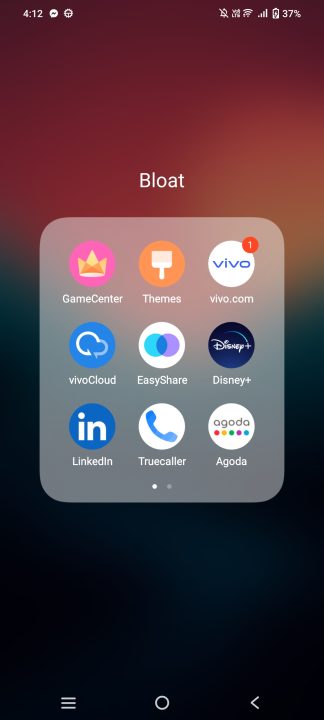
Yes, you can just turn off notifications for the vivo browser and all other apps that send out ads, but it just goes to show that you really have to take the time to clean everything up before you can get a more seamless UI experience.
We also have to reiterate here that the UI overall is choppy. Animations and app transitions aren’t fluid and it seems like, as mentioned earlier, you need to wait for a full second to get to where you want to go.
Maybe the ads are vivo’s way of getting a bit more revenue to subsidize the V27e’s lower price tag — I am of course only guessing here. Personally, I would pay the extra money to get a cleaner software experience.
The V27e is capable of WiFi of 2.4 Ghz and 5 Ghz, and has Bluetooth 5.2, GPS, BEIDOU, GALILEO, GLONASS, and QZSS.
Its SIM Slot can hold either 2 nano SIMs or 1 nano SIM and 1 micro SD card slot.
For battery, the V27e has a 4600 mAh capacity with support for GGW FlashCharge. In terms of general battery life, the V27e’s 4600 mAh cell can last you a full day and a half on light use. With my testing, I normally ended my day with at least 30-40% battery left. That’s with using the phone on data, browsing social media, taking photos and videos, and playing the occasional mobile game.
For our proprietary video loop test where we play a 1080p video on loop at 50% brightness and airplane mode turned on, the vivo V27e lasted 20 hours and 44 minutes.
On PC Mark’s Work 3.0 Battery test, the V27e got 15 hours and 40 minutes.

Overall, the vivo V27e has great battery life that can definitely last a full day of normal use and more.
To conclude, I think a phrase that could best summarize my time with the vivo V27e is “hit or miss.” There are some aspects of the vivo V27e that really do feel like a hit like the unique back panel design and overall construction, the great battery life, and the phone’s capability of capturing a great photo with the Aura Light Algorithm (which you’ll get after every five or so tries.)
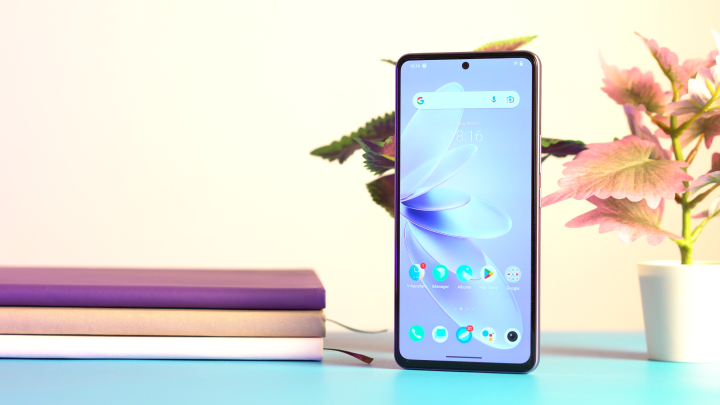
But it also has misses that are hard to forgive like the choppy 120 Hz refresh rate, the OS that feels a step slow and has more bloat than we’d like, and the overall inconsistency of the camera system itself.
At a price of Php 16,990USD 290INR 24,544EUR 276CNY 2,108, I would only really recommend the vivo V27e if you really like the design and build and don’t really care much about performance and software.
Personally, I would much rather get a phone with a faster chip and/or a cleaner software experience, and a more consistent camera even without the Aura ring light and Aura Portrait Algorithm features.
What we liked:
What we didn’t like:
6.62-inch FHD+ (2400 × 1080 pixels) AMOLED
120Hz refresh rate
MediaTek Helio G99 octa-core
2x Cortex-A76 2.2GHz & 6x Cortex-A55 2.0GHz
Mali-G57 MC2
8GB RAM
256GB internal storage
microSD card slot (hybrid with 2nd SIM)
Dual-SIM 4G/LTE
Triple-rear camera setup:
64MP OIS main f/1.79
2MP bokeh lens f/2.4
2MP macro f/2.4
Triple rear flash with single color temperature
Front camera: 33MP selfie f/2.0
WiFi 802.11/ac
Bluetooth 5.2
GPS, BEIDOU, GALILEO, GLONASS, QZSS
USB Type-C
Funtouch OS 13 Global (based on Android 12)
4600 mAh battery, 66W Flash Charge
Lavender Purple, Glory Black

YugaTech.com is the largest and longest-running technology site in the Philippines. Originally established in October 2002, the site was transformed into a full-fledged technology platform in 2005.
How to transfer, withdraw money from PayPal to GCash
Prices of Starlink satellite in the Philippines
Install Google GBox to Huawei smartphones
Pag-IBIG MP2 online application
How to check PhilHealth contributions online
How to find your SIM card serial number
Globe, PLDT, Converge, Sky: Unli fiber internet plans compared
10 biggest games in the Google Play Store
LTO periodic medical exam for 10-year licenses
Netflix codes to unlock hidden TV shows, movies
Apple, Asus, Cherry Mobile, Huawei, LG, Nokia, Oppo, Samsung, Sony, Vivo, Xiaomi, Lenovo, Infinix Mobile, Pocophone, Honor, iPhone, OnePlus, Tecno, Realme, HTC, Gionee, Kata, IQ00, Redmi, Razer, CloudFone, Motorola, Panasonic, TCL, Wiko
Best Android smartphones between PHP 20,000 - 25,000
Smartphones under PHP 10,000 in the Philippines
Smartphones under PHP 12K Philippines
Best smartphones for kids under PHP 7,000
Smartphones under PHP 15,000 in the Philippines
Best Android smartphones between PHP 15,000 - 20,000
Smartphones under PHP 20,000 in the Philippines
Most affordable 5G phones in the Philippines under PHP 20K
5G smartphones in the Philippines under PHP 16K
Smartphone pricelist Philippines 2024
Smartphone pricelist Philippines 2023
Smartphone pricelist Philippines 2022
Smartphone pricelist Philippines 2021
Smartphone pricelist Philippines 2020
joberta says:
You could buy some google pixels at this price, with stock android and better cameras.